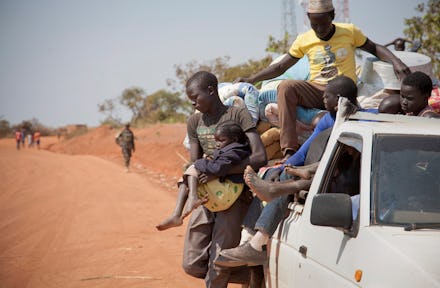Sudan used deadly chemical weapons on civilians in Darfur, Amnesty International reports

"Babies screaming with pain before dying, young children vomiting blood — the images we have seen are truly shocking," said Amnesty International's director of crisis response Tirana Hassan, in a chilling report on the Sudanese government's use of chemical weapons on civilians in Darfur, a region of western Sudan.
The report, titled "Scorched Earth, Poisoned Air" and published Thursday, presents "credible evidence" of crimes against humanity and also war crimes.
Based on a combination of testimony, photographs and satellite imagery, Amnesty believes the Sudanese government has deployed chemical weapons in Jebel Marra, a remote area of Darfur, at least 30 times in 2016 alone, resulting in as many as 250 casualties. They were part of a military offensive, led by Sudanese President Omar al-Bashir, against any potential rebellion.
Many of the victims are babies and young children and the most recent of these suspected attacks was carried out Sept. 9.
"The effects of these chemicals on the human body are gruesome and frequently fatal," the report states.
Symptoms include blisters, which harden and make skin fall off, the vomiting of blood, diarrhea, loss of vision, respiratory system failure; death is a common outcome.
Sudanese officials have ardently denied the findings of this report.
"The allegations of use of chemical weapons by Sudanese Armed Forces is baseless and fabricated," Omer Dahab Fadl Mohamed, Sudan's UN ambassador, said in a statement, according to Al Jazeera.
Nonetheless, Amnesty insists its report contains "damning evidence" and has requested the United Nations launch a formal investigation.
The crisis in Darfur has endured for more than a decade and been described by the UN as "one of the worst humanitarian crises in the world."
A video on highlights from the report can be seen below. (Editor's note: This video contains graphic footage.)